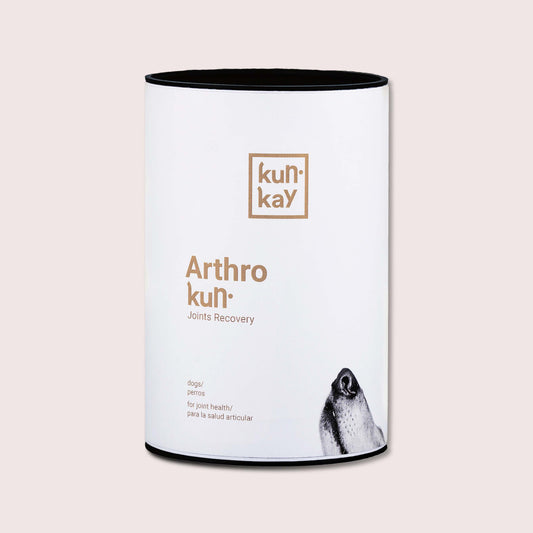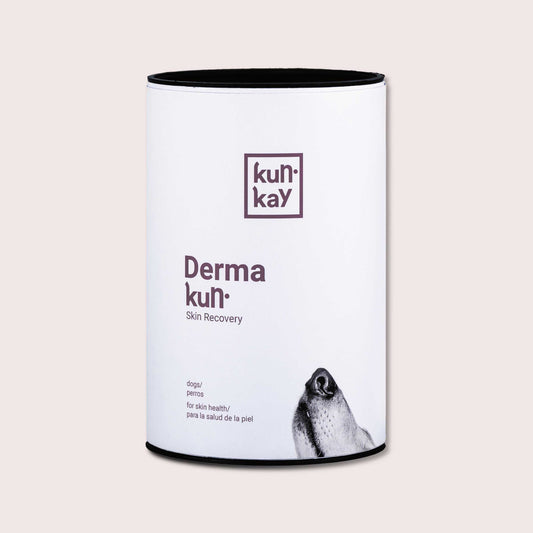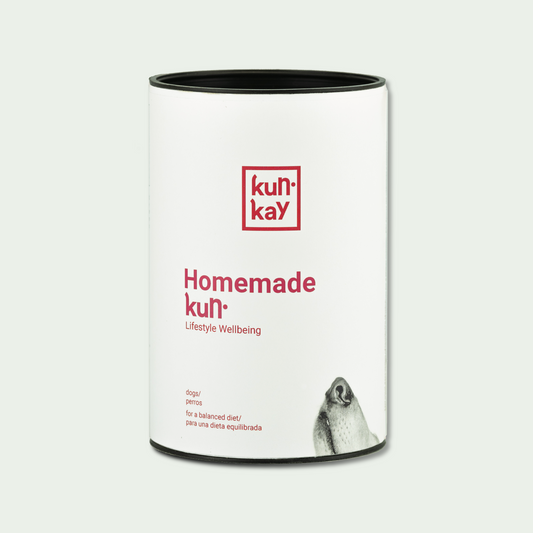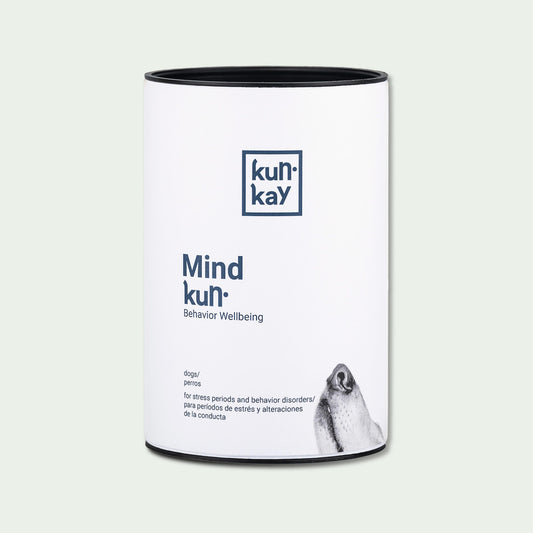My dog pees while sleeping
It is common for some dogs to urinate while they sleep, which is known as urinary incontinence. This situation is usually related to physical and cognitive health problems rather than the animal's behavior 🐾💙
The inability to hold urine is involuntary, and therefore, the animal is not aware of what happens while sleeping 💤. In these cases, it is recommended to visit the veterinarian to identify the cause of incontinence and start the appropriate treatment.

Diet influences kidney health
Below, we share some of the main reasons why your dog might leak urine during rest.
1. Hormonal problems after spaying in female dogs
Recent research suggests that spayed female dogs ❤🐶 who have undergone an ovariohysterectomy (removal of the uterus and ovaries) are three times more likely to develop urinary incontinence than those who have not been operated on. This is because sex hormones play a crucial role in controlling the urinary system, so the lack of these hormones can affect sphincter control. Incontinence is more common in large breed female dogs.
Treatment: If you notice your female dog leaking urine after spaying, consult your veterinarian 🩺 to consider the possibility of hormonal treatment. Although this type of incontinence is usually not dangerous, treatment can improve your dog's quality of life.
2. Urinary infection
Cystitis and other urinary infections can cause the dog to lose small amounts of urine while sleeping. This happens due to irritation of the bladder and urethra, which generates a constant need to urinate. If not treated in time, the infection could spread to the kidneys, severely affecting their health.
Treatment: In these cases, the veterinarian will perform a urine analysis to confirm the infection and prescribe antibiotics. Additionally, it is recommended to add natural anti-inflammatory supplements to your dog's diet that strengthen kidney health, such as Superpinkkun,💕 which combines synergistic ingredients and is ideal for protecting the urinary tract and preventing future infections, thanks to beetroot, coconut pulp, and red and blue cranberries.

Red and blue cranberries - natural antioxidants
3. Polydipsia
Polydipsia, or excessive thirst, is another cause that can lead the dog to urinate more than usual. Diseases such as diabetes, Cushing's syndrome, or pyometra increase urine production, which can cause episodes of incontinence.
Treatment: To identify the origin of polydipsia, blood tests, urine tests, and ultrasounds are recommended. Once the pathology is diagnosed, specific treatments can be implemented. It is essential to complement these care measures with supplements like Superpinkkun, which strengthens kidney health and helps balance urinary health.
4. Neoplasms
The presence of tumors in the urinary system or adjacent areas can compress the bladder, reducing its capacity and causing involuntary urine loss. In less frequent cases, tumors can affect the nervous system and impair sphincter control.
Treatment: It is essential to perform tests such as ultrasounds or CT scans to detect and analyze the extent of the tumor. In many cases, it is possible to surgically remove the masses in their early stages. If the tumor affects the nervous system, palliative treatment can improve the dog's quality of life.
5. Cognitive dysfunction syndrome
Cognitive dysfunction syndrome is a degenerative condition 🧠 that affects some senior dogs. This syndrome can alter the dog's behavior and cause urinary incontinence.
Treatment: The syndrome can be managed with treatments that slow its progression, such as nutraceuticals like Elderkun, and behavior modification exercises. Enriching the dog's environment and providing a specific diet adapted to their age can also improve their well-being. In these cases, Superpinkkun is also beneficial, as its antioxidant and anti-inflammatory formula supports kidney health in senior dogs.
6. Bladder stones
The formation of urinary stones is a common cause of incontinence in dogs. These stones or "calculi" in the bladder cause irritation and reduce the space to store urine, which triggers involuntary leaks, especially while the dog sleeps.
Treatment: Depending on the severity, treatment can be dietary or surgical. For mild cases, special diets and supplements like Superpinkkun can be used, which helps dissolve struvite stones (we do not recommend using it in case of oxalate crystals) and prevents their recurrence. Thanks to its synergistic ingredients, this supplement protects the urinary tract, reduces inflammation, and prevents sediment accumulation in the bladder.
This article is informative and does not intend to replace veterinary diagnosis. If your dog shows symptoms of urinary incontinence, we recommend visiting the veterinarian for a complete evaluation 😉




